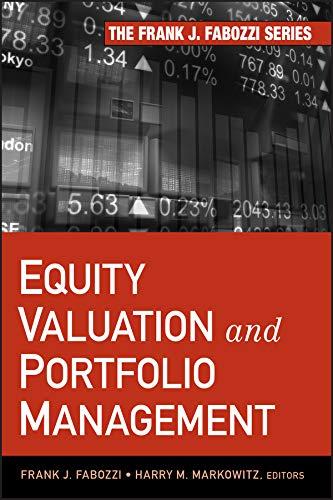Question
A newly issued bond pays its coupons once annually. Its coupon rate is 7.5%, its maturity is 20 years, and its yield to maturity is
A newly issued bond pays its coupons once annually. Its coupon rate is 7.5%, its maturity is 20 years, and its yield to maturity is 9.5%. Required: Find the holding-period return for a 1-year investment period if the bond is selling at a yield to maturity of 8.5% by the end of the year. If you sell the bond after one year, what taxes will you owe if the tax rate on interest income is 40% and the tax rate on capital gains income is 30%? The bond is subject to original-issue discount tax treatment. What is the after-tax holding-period return on the bond? Find the realized compound yield before taxes for a 2-year holding period
A) Find the holding-period return for a 1-year investment period if the bond is selling at a yield to maturity of 8.5% by the end of the year. Note: Do not round intermediate calculations. Round your answer to 2 decimal places. what is the holding-period return %
B) If you sell the bond after one year, what taxes will you owe if the tax rate on interest income is 40% and the tax rate on capital gains income is 30%? The bond is subject to original-issue discount tax treatment. Note: Do not round intermediate calculations. Round your answers to 2 decimal places.
tax on interest income?, tax on capital gain?, total taxes?
C) What is the after-tax holding-period return on the bond? Note: Do not round intermediate calculations. Round your answer to 2 decimal places.
After-tax holding-period return % ?
D) Find the realized compound yield before taxes for a 2-year holding period, assuming that (i) you sell the bond after two years, (ii) the bond yield is 8.5% at the end of the second year, and (iii) the coupon can be reinvested for one year at a 3% interest rate. Note: Do not round intermediate calculations. Round your answer to 2 decimal places.
Realized compound yield before taxes %??
E) Use the tax rates in part (b) to compute the after-tax 2-year realized compound yield. Remember to take account of OID tax rules. Note: Do not round intermediate calculations. Round your answer to 2 decimal places.
After-tax 2-year realized compound yield %?
Step by Step Solution
There are 3 Steps involved in it
Step: 1

Get Instant Access to Expert-Tailored Solutions
See step-by-step solutions with expert insights and AI powered tools for academic success
Step: 2

Step: 3

Ace Your Homework with AI
Get the answers you need in no time with our AI-driven, step-by-step assistance
Get Started


